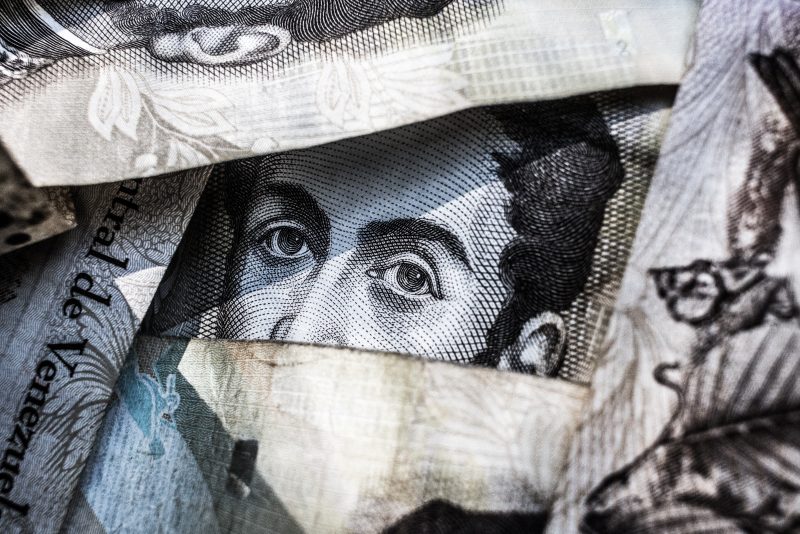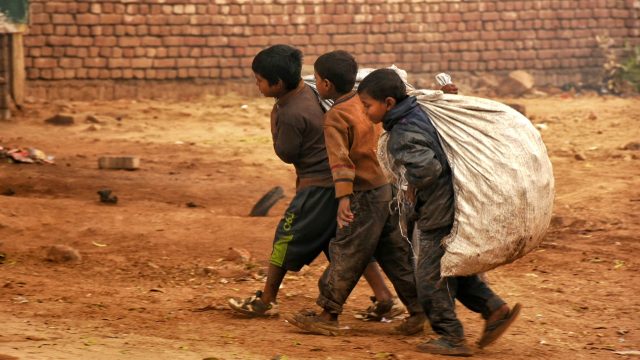Shaking the tax tree to unlock climate aid
How can we dredge up the trillions needed for development and decarbonisation? The money is out there - but redirecting it won't be easy

Dr. Maria Ron Balsera is the Interim Executive Director at the Center for Economic and Social Rights (CESR). This blog is based on her talk at the UN Civil Society Conference in Nairobi, Kenya, delivered on the 10th May 2024.
We live in a polycrisis, climate, debt, inequality and the burden is currently falling on those with fewer resources, those who have contributed the least to cause it. The SDG financing gap is estimated to be half a trillion dollars, nearly the same amount lost every year to global tax abuse committed by corporations and wealthy individuals.
The energy transition will require an additional $1 trillion per year and the loss and damage fund requires $400 billion per year. These figures might seem too big, especially when rich countries are not paying their fair share and the economic burden and climate change consequences disproportionately fall on lower-income countries.
Most solutions offered by International Financial Institutions rely on promoting market-based mechanisms such as unlocking private-sector finance, using public finance for de-risking approaches, and scaling carbon markets. Solutions based on borrowing, further exacerbate the debt crises as well as the climate crises because of the vicious cycle of debt repayments which impose an extractive economy based on exporting natural resources and industrial agriculture.
Borrowing also comes with conditionalities, fiscal consolidation, also known as austerity, shifting money away from essential public services such as health and education, to debt repayment. The gap in public services is largely subsidized by unpaid care work, which disproportionately falls on women and girls. Debt repayment should not trump human rights or the States’ legal obligation to raise and allocate the maximum available resources to finance economic and social rights and finance the climate transition.
So where should the money come from? Where is the magic money tree? Well, military spending keeps increasing, $2.4 trillion in 2023, with the genocide in Palestine reminding us of the consequences of this escalation. Fossil fuels subsidies surpass $7 trillion per year, so that’d be plenty of money to invest in climate mitigation and adaptation. A wealth tax on Europe’s super rich individuals would bring $1.2 trillion per year. Pretty fair, given that the wealthiest 10% are responsible for producing more than half of global carbon emissions.

However, the current global financial architecture, designed during colonial times, mainly represents the interest of its founders, particularly rich corporations and individuals in those countries, and is exacerbating the polycrises. Global economic governance needs to take place in a multilateral democratic and transparent forum. International tax cooperation and negotiations should take place at the UN, moving the setting of tax rules to a multilateral legitimate, and transparent forum where countries have equal voice.
The UN Framework Tax Convention presents a historic opportunity. Tackling illicit financial flows and global tax abuse is paramount. Automatic exchange of information, public beneficiary ownership register, and a public country-by-country reporting are foundational for transparency and accountability. Raising domestic resources through taxing corporations fairly, taxing wealth, particularly the accumulation of illegitimate wealth, excess profits, and eliminating harmful tax incentives are crucial to finance human rights, development, and the climate transition.
We need gender equality in the tax and fiscal system to eliminate explicit and implicit biases. Gender inequality is exacerbated by gender-blind tax negotiations, policy design, and institutionalized incoherence.
“ A fair tax system is the cornerstone of gathering the necessary resources to uphold human rights and address inequality.”
The current neoliberal and orthodox fiscal governance and policy ‘road map’ has generated huge damage by the unequal distribution of resources and weak standards of transparency and accountability. The transformation of the financial system and the development of a fair and green economic architecture requires introducing and expanding targeted tax measures including wealth taxes, windfall and excess-profit taxes, and sectoral levies on polluting industries.
As the highest emitters are also those responsible for most lost tax revenue, tax abuse and loopholes at the corporate and individual levels must be closed to ensure everyone pays their fair share, following the Common but Differentiated Responsibilities and Respective Capabilities (CBDR–RC).
This must be accompanied by a broad effort to divest from fossil fuels. A fair tax system is the cornerstone of gathering the necessary resources to uphold human rights and address inequality. States can foster a fairer society by leveraging taxes as a means to generate revenue to resource rights and public services, redistribute wealth to reduce inequality, re-price goods, and services to disincentivize harmful practices, enhance representation to improve democratic governance, and redress the historical legacies of colonization and ecological damage.
- Dr. Maria Ron Balsera, Interim Executive Director at the Center for Economic and Social Rights (CESR).


